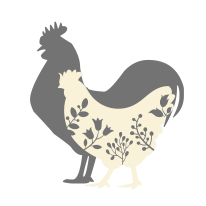10 Chicken Myths That Just Won’t Die (and the Truth From Our Coop)
When we brought home our first little box of peeping fluff balls, the advice started rolling in from every direction. Some of it was sweet, some of it was strange, and some of it was… just plain wrong. Chickens seem to have a special talent for attracting myths; probably because there are so many breeds, behaviors, and traditions around keeping them. But a lot of what you’ve heard might be more folklore than fact. Here are ten of the biggest chicken-keeping myths we’ve heard here at The Harper Farmhouse along with the truth, straight from our coop.
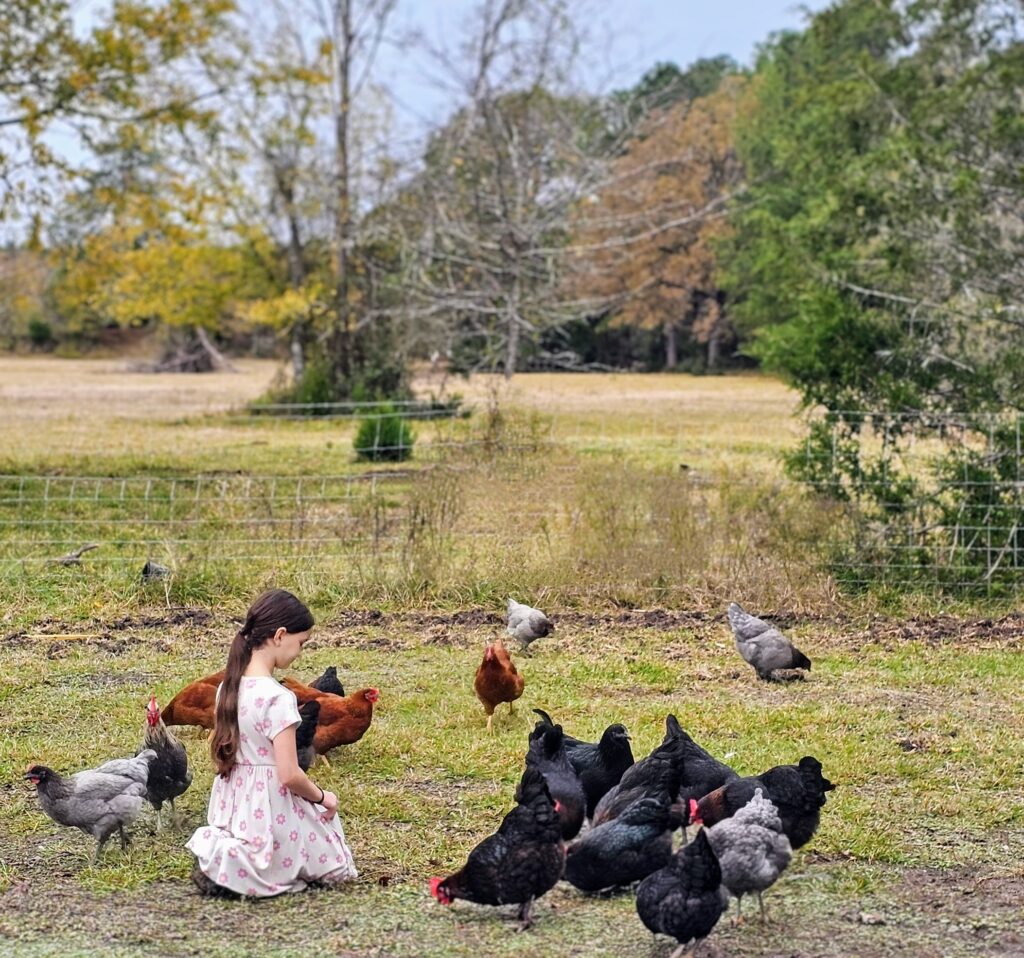
Myth #1 – You Need a Rooster for Hens to Lay Eggs
Truth: Hens lay eggs whether or not a rooster is around. The only difference? Without a rooster, the eggs won’t be fertilized (which is perfectly fine for eating). Think of the rooster as the “egg fertilizing department,” not the “egg production department.”
That said, a good rooster is worth his weight in chicken scratch. My main rooster, Snax, alerts the hens to predators and even calls them over when there’s food. If I toss out kitchen scraps, he’ll race over, make this adorable bubbly call, and all the hens come running. It’s like watching a feathered maître d’.
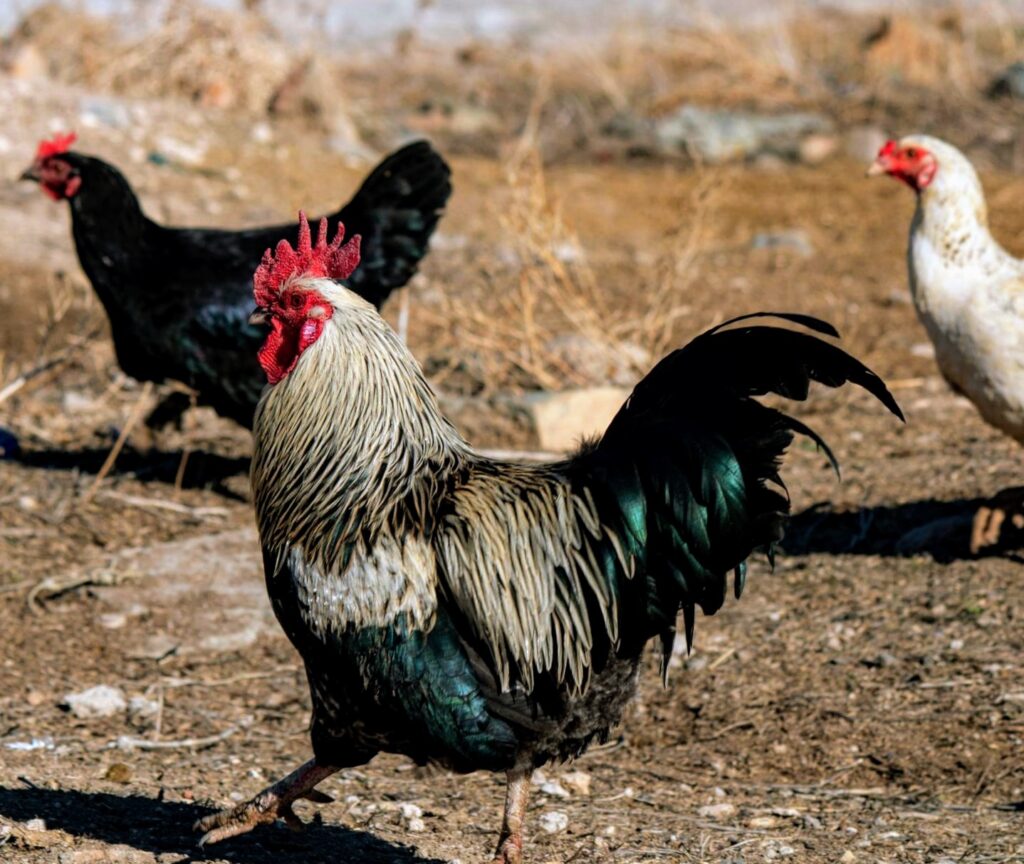
Myth #2 – Brown Eggs Are Healthier Than White Eggs
Truth: Shell color is purely genetics. A white egg from a healthy hen is just as nutritious as a brown egg from a healthy hen. Still, I admit I’m a sucker for a colorful egg basket. Around here, we’ve got green, blue, light brown, dark brown, and white eggs. While they’re nutritionally the same, they’re definitely prettier in the carton.
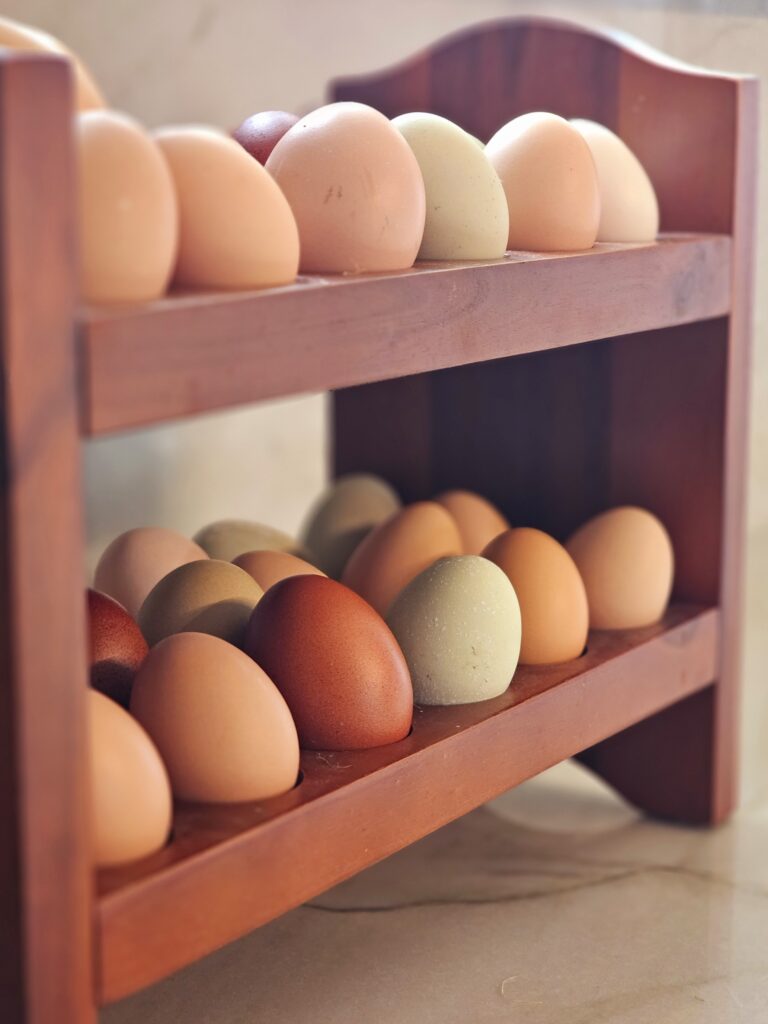
Myth #3 – Chickens Can’t Handle Cold Weather
Truth: Most breeds handle cold just fine, especially with shelter from wind and wet. Their fluffy down coats are better insulation than your favorite puffer jacket. In fact, heat stress in summer, especially here in southeast Texas, is often more dangerous than cold.
Chicks, however, are a different story. They need a reliable heat source and must be kept dry. I will post a chick keeping guide soon!
Myth #4 – Chickens Smell Terrible
Truth: A well-kept coop doesn’t stink. Bad smells come from poor management, too much moisture, and infrequent cleaning. Coop cleaning isn’t glamorous, and “the best” method depends on your climate, soil, and coop location (especially how water drains after rain).
What’s worked best for us: a coop on a slight incline, dirt floor, pine shavings, diatomaceous earth, and lime. I’ll do a full post soon on our coop management routine. It’s been a game changer.
Myth #5 – Hens Stop Laying Completely in Winter
Truth: Many hens slow down in the darker months, but they typically don’t stop completely. Good nutrition, stress-free housing, and a little supplemental light, if necessary to your geography, can keep eggs coming.
Myth #6 – Chickens Will Eat Anything
Truth: Chickens will peck at almost anything, but that doesn’t mean it’s safe. Foods like avocado pits/skins, raw beans, chocolate, and salty snacks can be toxic. And don’t forget about landscaping plants because many are dangerous to poultry.
Myth #7 – Once You Have Chickens, You’ll Never Buy Eggs Again
Truth: Chickens molt, go broody, and slow down in winter, meaning you’ll likely have eggless stretches. My solution? More chickens. (Yes, chicken math is real. And yes, I should have built a bigger coop.)
Myth #8 – All Roosters Are Mean
Truth: Roosters are individuals. Some are perfect gentlemen…others are not so much. Breed, handling, and environment matter. We’ve had roosters that ate from our hands and one that thought he was a velociraptor (he got the axe, literally).
One piece of advice I’ll always repeat: there are enough good roosters in the world to never tolerate a bad one.
Myth #9 – Chickens Need Heat Lamps All Winter
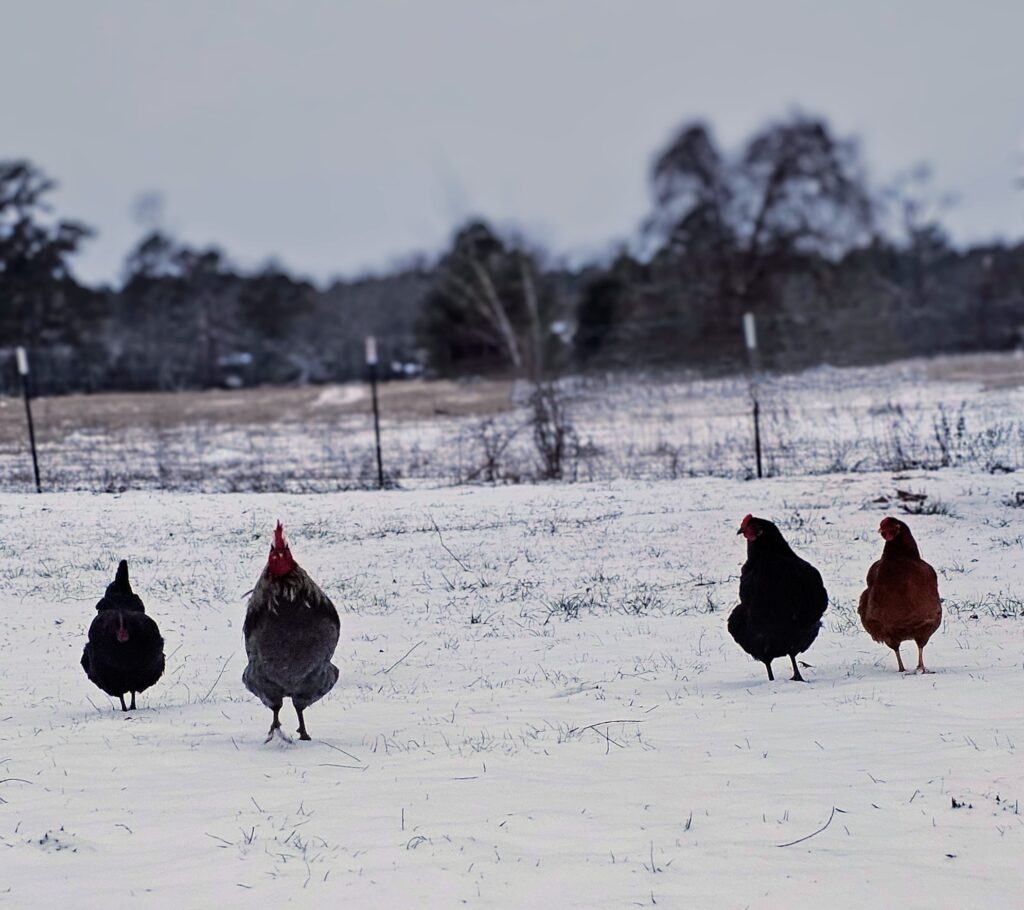
Truth: Heat lamps are more dangerous than helpful. They’re a major fire hazard, and healthy adult chickens are built for cold. For truly extreme temperatures, a draft-free coop is really all they need.
Myth #10 – Chickens Are “Low Maintenance”
Truth: They’re not as demanding as a dairy cow, but chickens still need daily care including fresh water, clean feed, predator protection, and regular health checks.
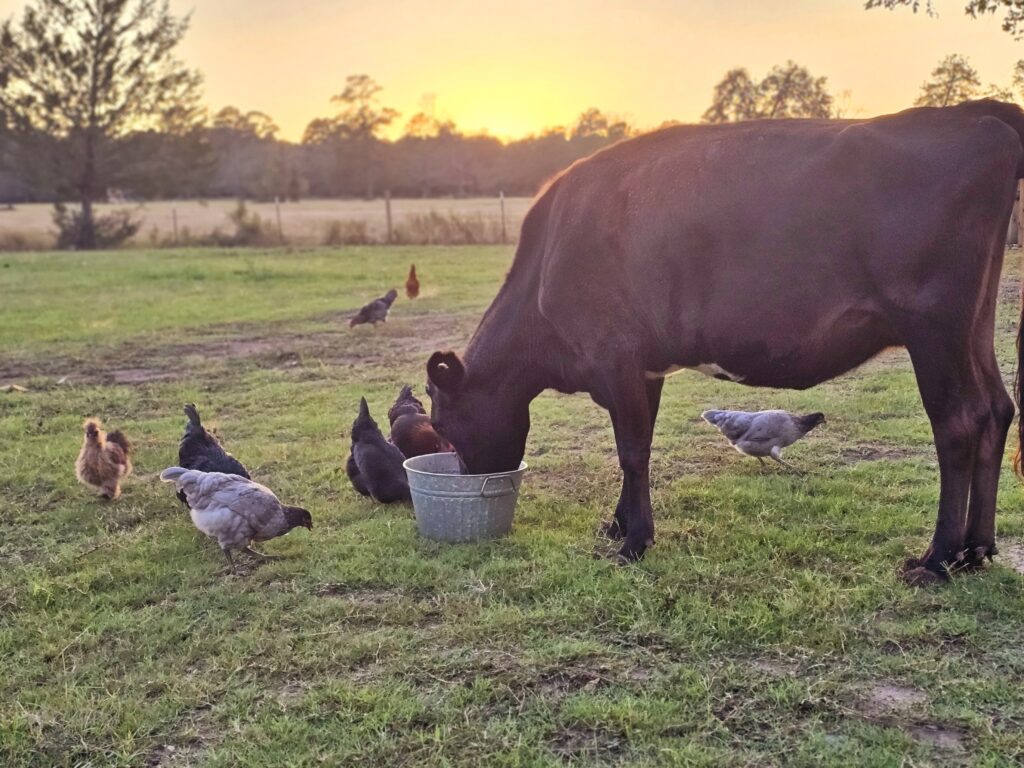
Chickens are endlessly fascinating but keeping them is often misunderstood. Part of the fun for us has been learning what’s true and what’s just poultry folklore.
What chicken myths have you heard? Drop them in the comments below.
